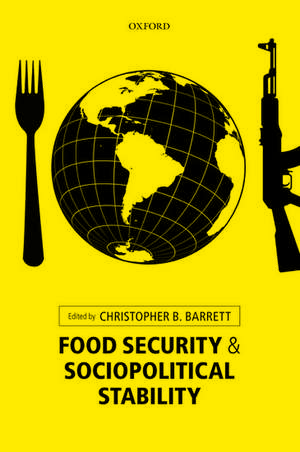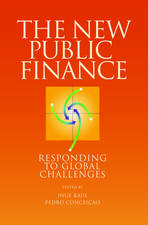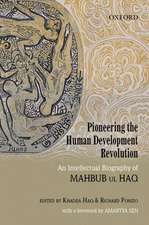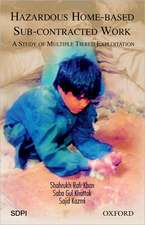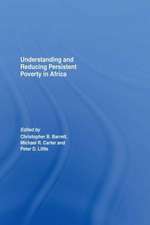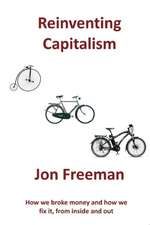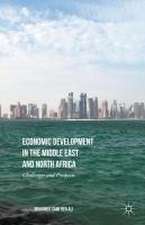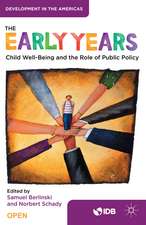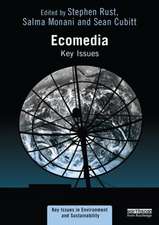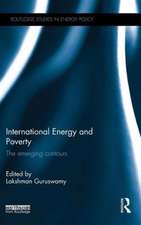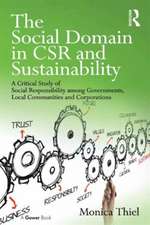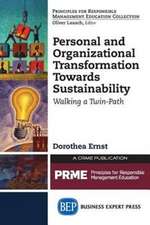Food Security and Sociopolitical Stability
Editat de Christopher B. Barretten Limba Engleză Paperback – 13 iul 2016
| Toate formatele și edițiile | Preț | Express |
|---|---|---|
| Paperback (1) | 337.05 lei 31-37 zile | |
| OUP OXFORD – 13 iul 2016 | 337.05 lei 31-37 zile | |
| Hardback (1) | 635.08 lei 31-37 zile | |
| Oxford University Press – 25 sep 2013 | 635.08 lei 31-37 zile |
Preț: 337.05 lei
Preț vechi: 363.57 lei
-7% Nou
Puncte Express: 506
Preț estimativ în valută:
64.49€ • 67.52$ • 53.36£
64.49€ • 67.52$ • 53.36£
Carte tipărită la comandă
Livrare economică 25-31 martie
Preluare comenzi: 021 569.72.76
Specificații
ISBN-13: 9780198758907
ISBN-10: 0198758901
Pagini: 510
Dimensiuni: 157 x 232 x 28 mm
Greutate: 0.76 kg
Editura: OUP OXFORD
Colecția OUP Oxford
Locul publicării:Oxford, United Kingdom
ISBN-10: 0198758901
Pagini: 510
Dimensiuni: 157 x 232 x 28 mm
Greutate: 0.76 kg
Editura: OUP OXFORD
Colecția OUP Oxford
Locul publicării:Oxford, United Kingdom
Recenzii
Rising incomes and growing populations mean more mouths to feed with more and better food. This book warns the world that this rising demand for food is not being met with rising supply, and that young, hungry poor people will threaten global peace and prosperity. This is no alarmist tract, however, but a well-researched, considered, and balanced collection of essays, with an emphasis on ways that domestic and global policy can minimize risk. An important read for all in the food policy and international security communities.
Food insecurity and hunger lead to lower productivity, poor heath and shortened life span of individuals. Food shortage and increased food prices can also lead to large disruptions and conflict of societies. This volume edited by Barrett and contributed to by some of the most authoritative scholars in the areas of food policy analyzes the relationship between food security and sociopolitical stability and re-sensitizes the important issue of feeding the world sustainably and stably in the future in terms of both natural environment and human society. The book is an excellent reference for scholars, students, policymakers and analysts, and development practitioners working on agriculture, food and international development.
This book is a high-quality and accessible contribution to a pressing policy issue: how to increase food production in a way that meets demand, reduces hunger, and prevents the worst kinds of sociopolitical instability. Food production strategies that are insensitive to food price volatility, to resource scarcity and environmental externalities, and to the propensity for conflict are doomed to fail. Those who formulate agricultural and food policy need to beginnowto view all of their choices through a triple lens of hunger reduction, conflict prevention and environmental management. If they do not, the legacy of their poor choices will be long lasting and will hurt the most vulnerable and powerless. Fortunately for the policymakers and their advisers, the contributions from the authors in this excellent book will help them to make the right decisions.
Finally, a volume on food security accessible to non-specialists yet authored by an A-list of international experts. There is no sensationalism here, just plenty of solid analysis, up to date information, and complete topical and regional coverage. If you are concerned about the contemporary social and political context of food security in poor countries, start by reading this book.
This volume is accessible to a wide range of audiences and will be of value to policy analysts, policy makers, economists, other social scientists, and those interested in the serious analysis and moral implications of both food security and socio-political stability.
Food insecurity and hunger lead to lower productivity, poor heath and shortened life span of individuals. Food shortage and increased food prices can also lead to large disruptions and conflict of societies. This volume edited by Barrett and contributed to by some of the most authoritative scholars in the areas of food policy analyzes the relationship between food security and sociopolitical stability and re-sensitizes the important issue of feeding the world sustainably and stably in the future in terms of both natural environment and human society. The book is an excellent reference for scholars, students, policymakers and analysts, and development practitioners working on agriculture, food and international development.
This book is a high-quality and accessible contribution to a pressing policy issue: how to increase food production in a way that meets demand, reduces hunger, and prevents the worst kinds of sociopolitical instability. Food production strategies that are insensitive to food price volatility, to resource scarcity and environmental externalities, and to the propensity for conflict are doomed to fail. Those who formulate agricultural and food policy need to beginnowto view all of their choices through a triple lens of hunger reduction, conflict prevention and environmental management. If they do not, the legacy of their poor choices will be long lasting and will hurt the most vulnerable and powerless. Fortunately for the policymakers and their advisers, the contributions from the authors in this excellent book will help them to make the right decisions.
Finally, a volume on food security accessible to non-specialists yet authored by an A-list of international experts. There is no sensationalism here, just plenty of solid analysis, up to date information, and complete topical and regional coverage. If you are concerned about the contemporary social and political context of food security in poor countries, start by reading this book.
This volume is accessible to a wide range of audiences and will be of value to policy analysts, policy makers, economists, other social scientists, and those interested in the serious analysis and moral implications of both food security and socio-political stability.
Notă biografică
Chris Barrett is the Stephen B. and Janice G. Ashley Professor of Applied Economics and Management and International Professor of Agriculture in the Charles H. Dyson School of Applied Economics and Management as well as Professor in the Department of Economics at Cornell University where he also serves as the Director of the Cornell Institute for International Food, Agriculture and Development's initiative on Stimulating Agricultural and Rural Transformation. He holds degrees from Princeton (A.B., History, 1984), Oxford (M.S., Development Economics, 1985) and the University of Wisconsin-Madison (dual Ph.D., Economics and Agricultural Economics, 1994). He has published several books and more than 250 journal articles or book chapters. He served as editor of the American Journal of Agricultural Economics 2003-2008, and is an associate editor or editorial board member of the African Journal of Agricultural and Resource Economics and the Egerton (Kenya) Journal of Humanities.
